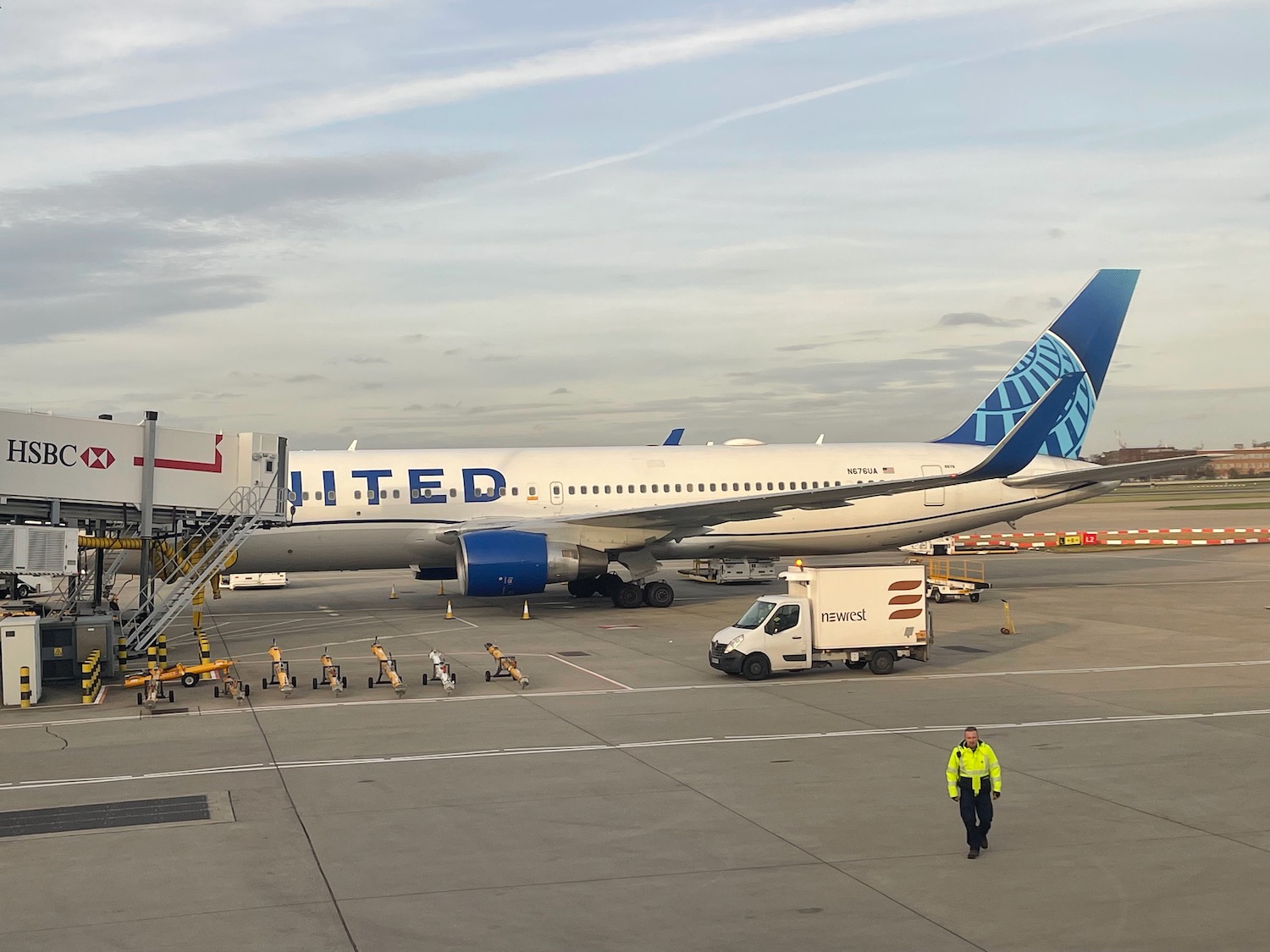
We assume the people responsible for our safety at 35,000 feet are sober. This story is an uncomfortable reminder that isn’t always true. A drunken flight attendant incident on a United Airlines transatlantic flight reminds us that aviation demands sobriety, not sympathy, but sometimes we have to wrestle with both.
A United Flight Attendant Drank Onboard. It Should Worry All of Us.
On October 17, 2025, a long-serving United Airlines flight attendant on a San Francisco (SFO) to London (LHR) flight drank multiple miniature bottles of vodka during the trip, was met by paramedics on arrival at Heathrow, and was later arrested after tests showed a blood alcohol concentration of 216 milligrams per 100 millilitres, roughly 10 to 11 times the legal limit for aircrew in the UK. The incident has ended a career of more than two decades (she reigned immediately after the incident before she could be fired) and has left many asking how this could have happened.
Colleagues noticed that something was wrong and radioed ahead. On the tarmac, paramedics described low blood pressure and alcohol on the flight attendant’s breath. She admitted to drinking, later pled guilty in court to performing an aviation duty while impaired, and received a fine rather than jail time, including:
- £1461 fine
- £584 victim surcharge
- £85 in court costs
(about 2800 USD)
What Should Our Repsonse Be?
There are two separate but related reactions to a story like this. The first is anger and fear. Cabin crew are critical to passenger safety. They respond to medical emergencies, run evacuation procedures, and act when the flight deck is occupied. The idea that a crew member would be intoxicated while on duty triggers a natural, indignant response.
The second reaction is pity and recognition that there is often more to these stories than headline facts. Reports indicate the flight attendant had been grappling with isolation and grief and that she brought her own miniature bottles on board. That context does not excuse what happened. It does, however, complicate our moral response. Addiction and acute stress can push otherwise sober-minded people to make catastrophic mistakes. The industry must insist on safety, while also creating pathways for intervention and treatment when appropriate.
From a regulatory standpoint, this case highlights a recurring double standard in the public mind. Courts in the U.K. historically treat intoxicated flight attendants more leniently than pilots, who often face harsher penalties, including jail. That difference is understandable given that pilots are the last line of defense in aircraft control. But it can foster complacency if not addressed carefully. Impairment anywhere in the cabin is a safety risk…what if that plane had to evacuate?
Airlines do have safeguards: pre-duty fitness checks, crew peer reporting, captain authority to ground unfit staff, and in some cases, random testing. Yet no system is perfect. Sometimes the first prevention is a co-worker recognizing a problem and alerting authorities before something worse happens.
Is This More Common Than We Think?
We should also be honest about aviation culture. For decades, layovers and alcohol have often gone hand in hand. That is changing. Many airlines and unions now push employee assistance programs more aggressively. Substance misuse policies are stronger. Still, stigma remains. Senior crew in trouble often hide it rather than seek help. Removing that stigma, encouraging early intervention, and enforcing clear safety boundaries is essential. A system where crew members feel they must hide alcohol in a galley bag is a system that has already failed them.
But that does not mean voiding personal accountability. What matters most is protecting passengers. After all, flight attendants incessantly remind us that they are “primarily here for our safety.” We can show compassion for struggling crew members while still insisting on accountability. Those two positions are not contradictory. A safer industry is one that supports its people before they reach a breaking point but still punishes them when they break the law.
I feel very bad for this woman, but she does not deserve to be a United flight attendant.
CONCLUSION
This was a tragic situation for the crew member, for United Airlines, and for every passenger who trusted their safety during that transatlantic crossing. The immediate question is how it happened. The bigger question is whether airlines are doing enough to protect travelers and intervene when employees are in crisis. That’s an ongoing issue in the industry and one that I have no easy answer for, but at least the system worked here in the sense that this (former) flight attendant did not go undetected.




It’s a sad incident. Hope she gets the help she needs. Not fit to fly.
For once we agree.
Eh, we’ve agreed before, and we’ll probably agree again; you’d be surprised.
Fit to be “secretary of war” though.
I second that.
Well, her flying career is over. It’s unfortunate that things had to end in such a publicly humiliating way, but there’s been a serious and potentially dangerous breach of trust on the FAs part. In these cases the individual has often been working impaired for quite some time, until they slip up one day and go too far – the FA obviously drunk, the anesthesiologist found on the floor of a staff restroom with the needle still in their arm, or the trucker who causes a fatal accident. All are avoidable tragedies.
Very sad for this individual that must have affected her judgement to do this. Appreciative that she immediately showed responsibility by resigning.
Looks like Antonov tried to teach Rookie something: “The airplane runs on vodka, why not you?” (CrispyFlights YT channel reference)
She probably celebrated the “Greatest Airline in history”